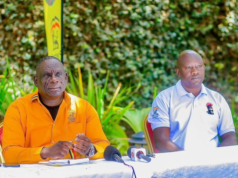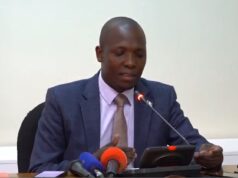
Every adult Ugandan will have to contribute to the National Health Insurance in the new proposals contained in a bill that will soon be presented before the cabinet, the Ministry of Health has revealed.
Speaking during an event to launch an eight-year strategy aimed at achieving Universal Healthcare Coverage by 2030 by AMREF Uganda on Friday, Margret Muhanga Mugisa, the Primary Health Care Minister, said that even as the bill was bounced back, politicians are still fighting to frustrate the scheme. She said politicians are now saying Ugandans can’t afford to pay the suggested annual contribution of Fifteen thousand shillings.
Shortly after being passed by parliament in 2021, the bill that was supposed to facilitate the introduction of the national health insurance scheme was controversially withdrawn by the government citing gaps that needed to be addressed after thorough consultations with stakeholders.

Now, Muhanga says they will soon table the revised bill before the cabinet but according to Prof Elizabeth Ekirapa, a Health system specialist based at Makerere University School of Public Health even as there have been many attempts to introduce the public insurance scheme, there is currently very low awareness about health insurance and its benefits in the country.
Ekirapa says sections of the public wrongly believe that once the insurance scheme comes into place, the population will immediately get better services and yet it will take some time for the service to be improved.

On his part, Dr. Githinji Gitahi, the AMREF Health Africa Chief Executive Officer, says for Uganda, with the biggest population employed in the informal sector, will need to do the mapping to determine which people are able to contribute to the scheme.
He suggests the use of Village Health Teams (VHTs) to determine those that can afford the annual contribution and this he says has to be a continuous process because poverty levels keep changing.
Meanwhile, US$ 150 million has been set aside to finance the newly launched strategy which among others aims to improve access to health services, improve health education and come up with climate strategies to tackle climate change which in the end will lead to achieving universal healthcare coverage.






